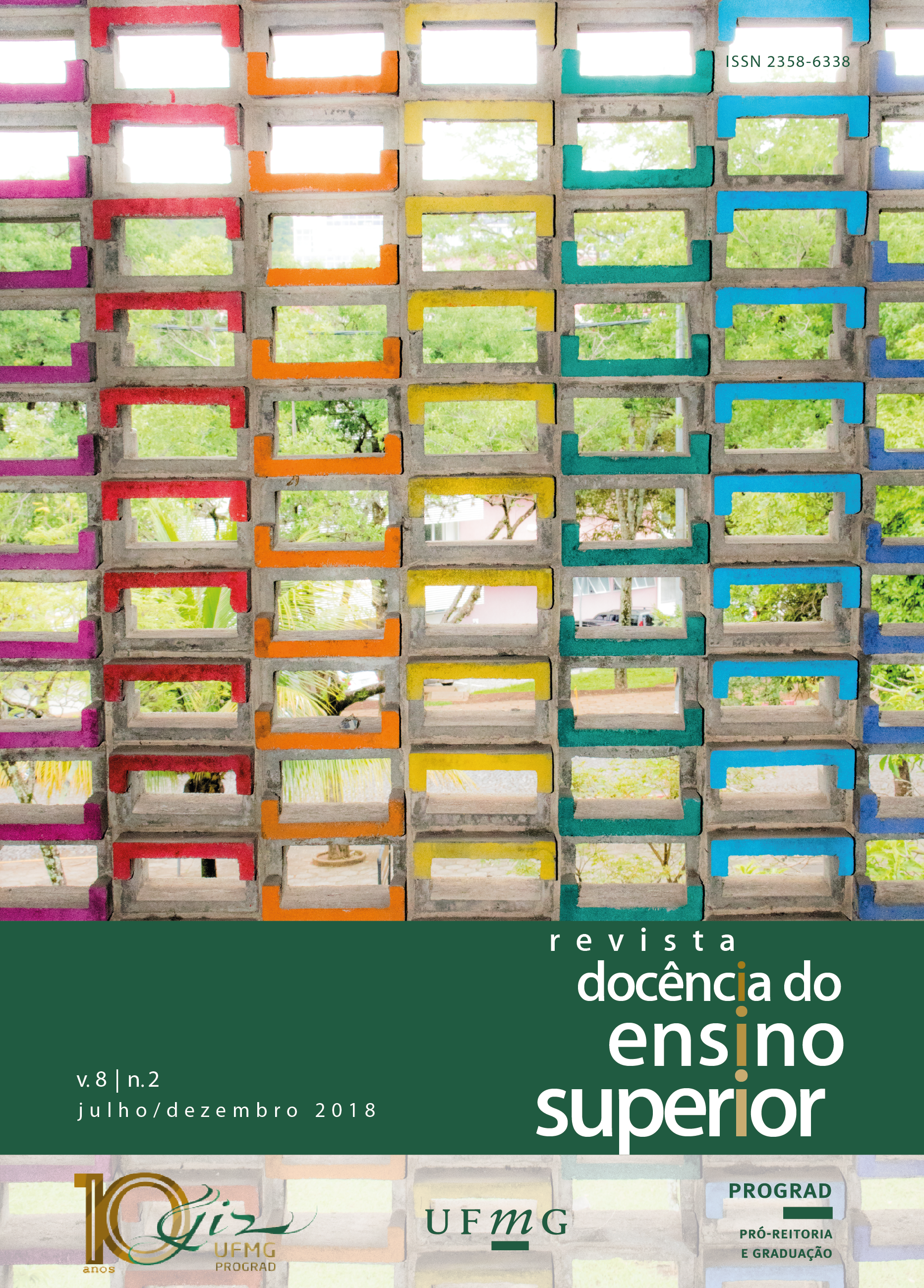The teaching of Philosophy at distance in a brazilian university’s specialization course
experience report
DOI:
https://doi.org/10.35699/2237-5864.2018.2487Keywords:
Teacher training, Philosophy-Teaching, Distance educationAbstract
The report of experiences presents and reflects the continued formation of teachers for the teaching of Philosophy in basic education in several municipalities of the interior of Bahia, in Brazil, in a virtual learning environment, starting from the relation between professor-tutor and student in the course of Specialization in Teaching of Philosophy, offered in the distance modality by the Federal University of Bahia. Its objective is to investigate the perception of the students about the relationship between the content of Philosophy, distance education and the culture of the interior of Bahia. For this, the context of Philosophy teaching in Brazil is highlighted, as well as the importance of dialogic mediation carried out by distance learning during teacher training. Finally, the results obtained through the evaluation of the course completion work indicate that the culture of each region enhances new ways of teaching Philosophy, contributing to the internalization and democratization of distance public higher education.
Downloads
Downloads
Published
Issue
Section
License
Authors who publish in this journal retain the copyright and grant the journal the right of first publication, with the work simultaneously licensed under the Creative Commons Attribution License which allows the sharing of work with acknowledgment of authorship and initial publication in this journal.
Authors are authorized to take additional contracts separately, for non-exclusive distribution of the version of the work published in this journal (e.g. publish in institutional repository or as a book chapter), with acknowledgment of authorship and initial publication in this journal.
Open access policy:
Revista Docência do Ensino Superior is an Open Access journal, which means that all content is available free of charge, at no cost to the user or their institution. Users may read, download, copy, distribute, print, search, or link to the full texts of the articles, or use them for any other legal purpose, without seeking prior permission from the publisher or author, provided they respect the license to use the Creative Commons used by the journal. This definition of open access is in line with the Budapest Open Access Initiative (BOAI).



























